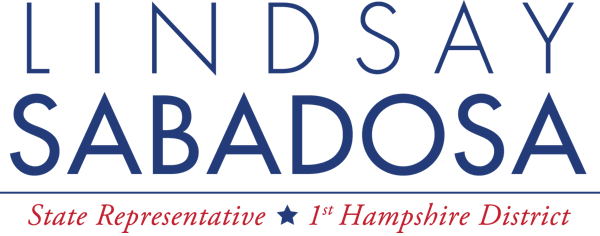HEALTH CARE FINANCING (2023-24)
Our system of care remains inaccessible, particularly for our most vulnerable. As a member of the Joint Committee on Health Care Financing, I’ve introduced several bills informed by health equity and reproductive justice.
Ensure prompt access to care for chronic conditions
H. 1140 An Act assuring prompt access to health care
Brought to my attention by a local physician, under our current system, patients with diseases such as diabetes and asthma are putting off regular care due to high deductible plans. This often results in these patients requiring emergency care that could have otherwise been avoided. If passed, this bill would disallow chronic conditions from being counted toward deductibles. This means that patients would receive the care they need when they need it, an efficient and cost-saving economic choice for our health care system.
Require full coverage for reproductive and maternal health care
H. 1137 An Act ensuring access to full spectrum pregnancy care
Last session, Massachusetts eliminated cost-sharing for abortion and abortion-related care, but continued to neglect other vital reproductive and maternal health needs. Services left out of last session’s legislation include prenatal care, miscarriage management, labor and delivery, and postpartum care. Between 2016 and 2018, the 4% increase in the average cost of pregnancy, delivery, and postpartum care correlated to a 23% increase in average out of pocket costs for patients. H. 1137 would eliminate those costs and result in a minimal increase in premiums.
Of course, the economic strain of paying for maternal health care is not distributed evenly. In recent years, several maternal health care facilities in Massachusetts have closed, worsening existing health care deserts in the state — against the backdrop of bleak statistics surrounding racial equity in maternal health care. Eliminating costs would be a critical step in addressing racial disparities in health access and outcomes.
If passed, this bill would eliminate cost-sharing to full spectrum pregnancy care (medical conditions related to pregnancy).
H. 1139 An Act relative to insurance coverage for doula services
This legislation expands insurance coverage to include Doula Services to cover pregnanct individuals and postpartum individuals up to 12 months following pregnancy who are eligible, regardless of immigration status. Insurance must cover continuous support through labor and childbirth and will create a Doula Advisory Committee, which is which is under the Department of Public Health
H. 1239 An Act establishing Medicare for all in Massachusetts
With rising healthcare costs making health care unaccessible and unaffordable, a single-payer health care system is the way forward. This bill would remove profit-driven health insurance companies as the barrier between patients and providers, and instead allow the government to reimburse health care providers directly.
Support doula care
H. 1240 An Act relative to Medicaid coverage for doula services
While MA has the second lowest maternal mortality in the country, significant disparities by race and ethnicity persist. Most glaringly, rates of maternal morbidity and mortality for non-hispanic Black mothers are twice that of non-hispanic white mothers. This is why the Commonwealth must commit to supporting doulas, who have been shown to improve health outcomes for birthing people through their advocacy for laboring women and their families and support that extends beyond the immediate clinical setting. These improvements are most pronounced among socially disadvantaged groups, including Black, Indigenous people of color, immigrants, and low income birthing people. As such, we must work to ensure equitable access to this care by supporting current and future doulas.
If passed, this bill would:
Require MassHealth to cover doula services to pregnant individuals and postpartum individuals up to one year following the end of the pregnancy
This includes continuous support through labor and childbirth, and at least 6 doula visits across the prenatal and one year postpartum period, including at least 2 postpartum visits without prior authorization
Require MassHealth to establish a process to cover additional doula visits as needed
Create a Doula Advisory Committee including public health professionals, practicing doulas, individuals who have experienced pregnancy, and members of groups historically marginalized by our system of prenatal and postpartum care
Require the Doula Advisory Committee to consult about doula services covered by MassHealth, recruitment of a diverse workforce of doulas, development of comprehensive and low cost or free doula training,
Create a Doula Workforce Development Trust Fund to develop workforce training, recruitment and retention programs for a diverse workforce of doulas
Ensure a birthing patient’s right to have their doula’s continuous presence during labor and delivery
H. 1948 An Act relative to paid pregnancy loss leave
This legislation ensures employers provide at least three days of paid leave for workers following a pregnancy loss. Pregnancy loss includes an unsuccessful assisted reproductive technology procedure, a failed adoption arrangement, a failed surrogacy arrangement, and a medical event that impacts pregnancy and fertility.
